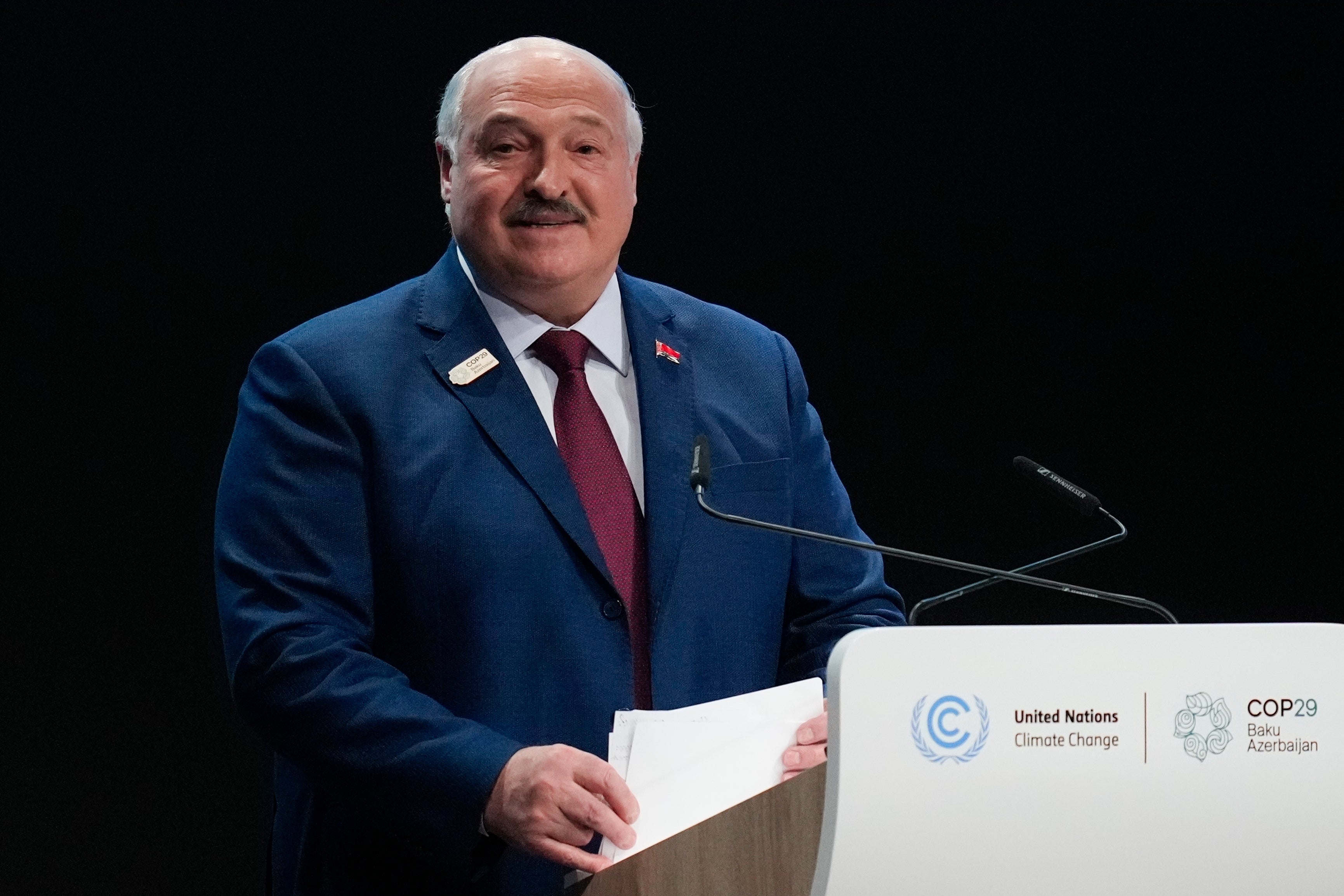Belarus grants asylum to fugitive Polish judge wanted on spying allegations
Belarus has granted asylum to a former Polish judge who faced espionage charges at home following his defection in May to the Kremlin-allied country

Your support helps us to tell the story
From reproductive rights to climate change to Big Tech, The Independent is on the ground when the story is developing. Whether it's investigating the financials of Elon Musk's pro-Trump PAC or producing our latest documentary, 'The A Word', which shines a light on the American women fighting for reproductive rights, we know how important it is to parse out the facts from the messaging.
At such a critical moment in US history, we need reporters on the ground. Your donation allows us to keep sending journalists to speak to both sides of the story.
The Independent is trusted by Americans across the entire political spectrum. And unlike many other quality news outlets, we choose not to lock Americans out of our reporting and analysis with paywalls. We believe quality journalism should be available to everyone, paid for by those who can afford it.
Your support makes all the difference.Belarus has granted asylum to a former Polish judge who faced espionage charges at home following his defection in May to the Kremlin-allied country.
A decree published Friday by Alexander Lukashenko, Belarus’ autocratic president, described Tomasz Szmydt as being “prosecuted for political reasons” in Poland. The country is an EU and NATO member that has lent vocal support to Ukraine in its war against Russian aggression.
Szmydt’s defection to Belarus in May trained the focus on Poland as a key target for Russian intelligence activity and ignited a bitter political row over the circumstances of his rapid ascent through the ranks of the Polish justice system.
Poland’s prosecutors and special services launched an investigation the same month after Belarus media reported that Szmydt arrived in the country and asked for protection. Warsaw responded days later by putting Szmydt on a wanted list, a step toward an international arrest warrant on spying allegations that would restrict his ability to travel internationally.
Polish officials have been working to determine how harmful Szmydt’s knowledge of any classified information might be to the interests of Warsaw and its Western allies. Poland’s Prime Minister Donald Tusk has publicly called him a traitor.
Szmydt fled to Belarus after resigning from his post as a judge at the Warsaw Administrative Court, saying in a public statement that he was doing so in protest against Poland’s “harmful and unjust” policy toward Belarus and Russia. A short time later, he appeared at a press conference in Belarus, praising Lukashenko’s regime and presenting himself as a victim of repression.
A Polish court later that month lifted Szmydt’s immunity, allowing him to be tried in absentia for spying allegations that he has denied.
Szmydt was notorious in Poland for having engaged in a 2019 online smear campaign against other judges that was sponsored by the Justice Ministry under the previous right-wing government. Three years later, he appeared to switch sides, appearing in a TV documentary to expose what he said was unethical behavior by judges close to the ruling party.
Szmydt’s defection came as a shock in Poland, which has a history of distrust of Russia.
Belarus has been one of the Kremlin’s few close allies since Russia’s full-scale invasion of Ukraine in February 2022, and Lukashenko has relied on Moscow's subsidies and support. In return, he has allowed Moscow to use Belarusian territory to send troops and weapons into the neighboring state, and to deploy tactical nuclear weapons on Belarusian soil.
Authorities in Minsk have been ratcheting up repressive measures ahead of a presidential election in January in which the strongman leader is seeking a seventh term, including by arresting hundreds of people who have shown solidarity with Kyiv.
Authorities responded to massive protests following the widely disputed 2020 election of Lukashenko with a wide-ranging crackdown in which about 65,000 people were arrested. Major opposition figures were either imprisoned or fled the country, and human rights activists say Belarus is holding about 1,300 political prisoners.